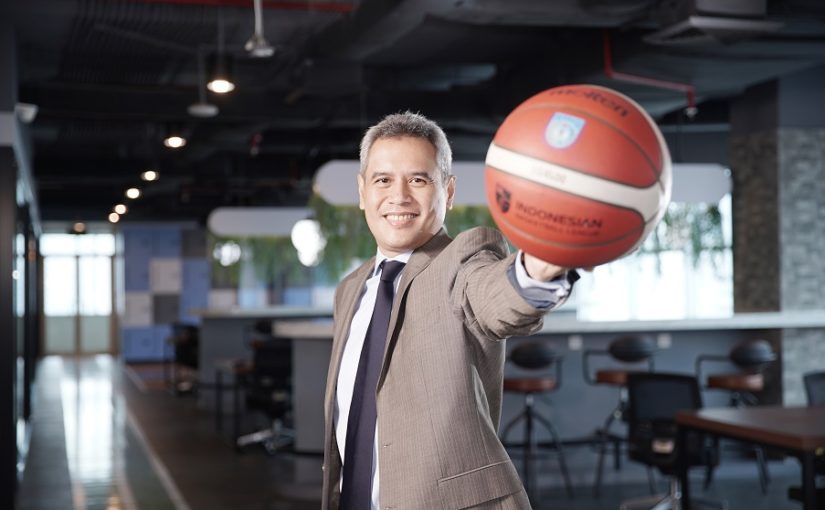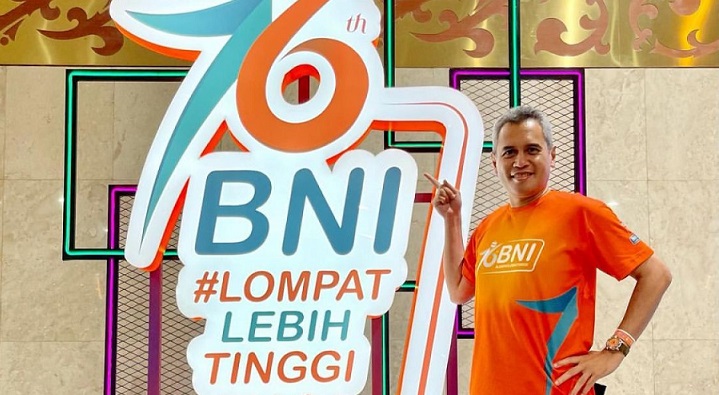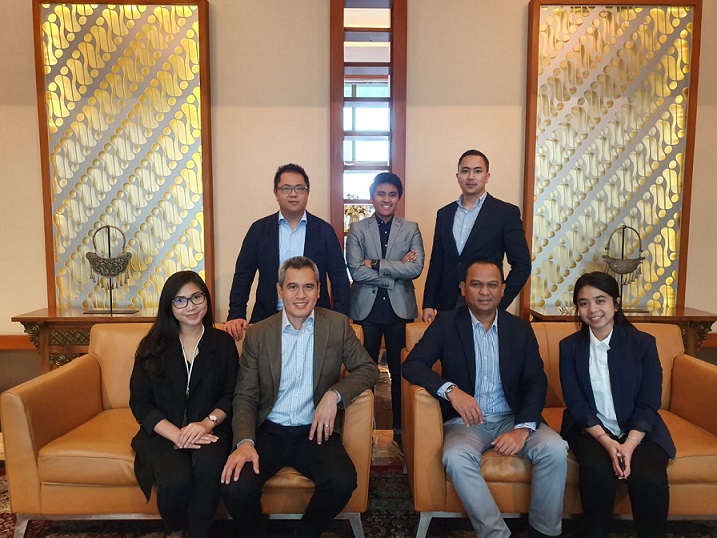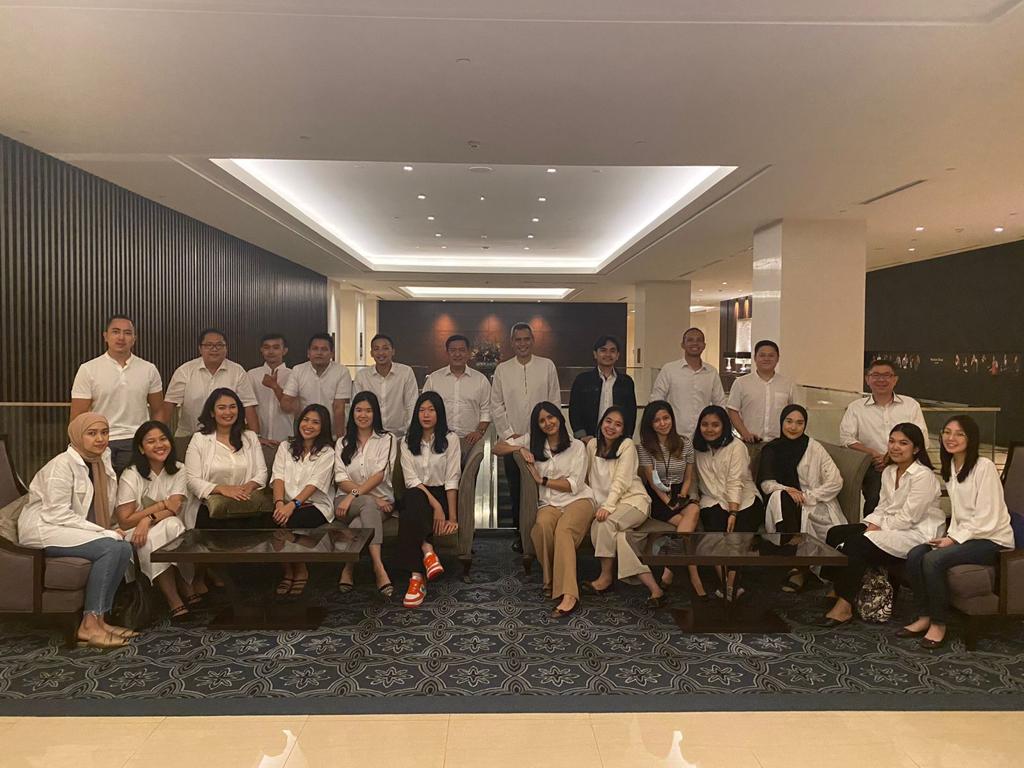This article is a part of DailySocial’s Mastermind Series, featuring innovators and leaders in Indonesia’s tech industry sharing their stories and point of view.
Indonesia’s investment ecosystem is said to have a tough time, as affected by the “winter season” in the US, where some sources flow the investment money in this country. However, despite the unfortunate facts, we can learn many things from this situation. Eddi Danusaputro agreed on this as a necessary evil, a maturing process for Indonesian startups, which for a long time has had its seasons in the sun.
Recently departed from MCI (Mandiri Capital Indonesia), Eddi Danusaputro has put all in his power to build and nurture the State-Owned Enterprise’s CVC from day one. With limited resources and a small room for experiments, Eddi has led this company to generate 20 investment portfolios. The most recent investment was on Jul 11, 2022, when AgriAku raised $35M. Aside from that, the CVC has had three exits, including the most notable ones, Moka and Jurnal.id.
After dedicating almost 6,5 years of his life to MCI, Eddi is ready to embrace a new journey with another state-owned VC, Bank Negara Indonesia (BNI). Although he is not yet available to discuss much of the new entity’s further plan, he assured to make a good deal of all his previous experiences in the new venture. In addition, he will be fully in charge of the Merah Putih Fund, a fund initiated by the SOE ministry and co-managed by 5 CVCs.
Not long ago, he was appointed as the Chairman of Amvesindo, a venture capital association for Indonesian startups. Aside from the VC life, Eddi is highly passionate about basketball. To date, he’s been involved as the Chairman of Indonesia’s local basketball club, Amartha Hangtuah.
Above are some facts about Eddi Danusaputro. DailySocial has had a chance to hear more about his journey to becoming one of the most successful venture capitalists in the country. Let’s listen to it through the excerpt below.
Let’s start with the early days of your career. How was the journey of becoming a venture capitalist with your economic background?
We usually think we choose our journey, but sometimes it’s the journey that finds us. I graduated in the mid-’90s, and the digital industry was not developed back then. Some options include a state-owned enterprise (SOE), government-related, or Multinational. I chose the last one.
I began in the sales department for FMCG products, P&G. I admit that this experience has sharpened my marketing skills. Whatever you do, whether in sales, marketing, or engineering, at the end of the day, you have to be able to sell. People sell every part of themselves, their ideas, their skills, and their products. Communication sets of skills are essential.
Furthermore, I got a scholarship to Duke University in the US, catching my enthusiasm for the finance industry. I started in New York City with Morgan Stanley, then relocated to Singapore. I lived there for 12 years and finally returned to my home country to help build MCI.
You have experienced different cultures by studying and working in the US, then transferred to Singapore and living there for 12 years. Is there any significant impact on your journey?
Studying abroad has broadened my insight. With students and lecturers from different countries also brought different perspectives. Several trends are set outside the home country. For example, the “dot com” trend started in the US, and I am fortunate to experience it live. It goes along with investment terms, private funds, and so on that rise from the west. People with the privilege to study or work abroad can experience the trend and move back to leverage the movement in their home country.
In Singapore, people tend to be disciplined and punctual. Also, they are usually more individualist in terms of working culture. Colleagues do not necessarily become friends. They’re just in it for the job. Meanwhile, aside from the traffic that challenges time management in Indonesia, we are most likely to be social. Friends are pretty close and easily share contact. In other countries, privacy is precious.
During the journey, you’ve been occupying several positions. Which one do you cherish most?
I have been working in the capital market, where we need to keep an eye 24/7 to monitor the selling and buyout in the exchange. This situation has affected my working hours and communication in general, not mentioning about the time differences and the high volatility. It is pretty different from the dynamics of the startup industry. However, whichever, I should be able to enjoy the process.
How about the challenge after you’ve entered the VC industry?
In the startup industry, we’re investing in people, the founders. We need to build a relationship to know the person, which requires some time. That is one thing. Then, the pandemic came rattling, and some did not make it.
Recently, the startup industry is said to have a winter season. Some of these startups are yet to experience a correction, either topline or valuation. This condition is something they should learn from. Is it going to affect the runway? Should they be worried? What will the investors do? This way, we can finally see the founder’s character and which one will be resilient and survive during the hard times.
You’ve recently departed from Mandiri Capital Indonesia after 6,5 years of building and nurturing the CVC. What can you share about the experience, and where do you plan the next journey?
I was there from day one of MCI. I helped build the system, workflow, and SOP and shaped the company culture. We are not a giant company with massive resources. Therefore, we need to work efficiently. I need most of the team to be generalists and intrigued to know the work of the other groups. Work rotation is necessary. Everyone should learn everything before becoming a specialist.
As a CVC, we also need to take a risk, not to be reckless but calculated risks. It is fair to make mistakes as long as the process has been proper. However, not all decisions turn out to be what we planned. The culture is to know how to make a decision and be responsible.
It has been two terms, and I have officially departed from MCI. However, I’m still being an advisor during the transition to my new position. MCI is a long trip. My next journey is to build a new CVC for Bank Negara Indonesia (BNI). It may look similar to the last journey, but I’ve had my experiences and learned my lessons.
You were recently appointed as the Chairman of Amvesindo, a venture capital association for Indonesian startups. Do you think the industry has already in its ideal situation?
On a general note, the association covers not only the VCs but also startups (which are yet to have an independent association). It also becomes a discussion companion for regulators, bridging the concern of the two parties. It is the core and primary function in this industry.
It is yet to be ideal. However, this is a long journey. The important thing is that communication is way better than before. Startups, VCs, and the government have built an excellent start to walk through this journey.
Aside from the current job, do you have other interests to pursue?
I’m also an angel investor for some companies starting from scratch. Also, I’m currently a Chairman of the Amartha Hangtuah basketball club.
I have a mission for Indonesian basketball clubs can be profitable like the global ones, not just rely on the owner’s pockets. I’ve dreamed of them surviving with sponsorships, ticket merchandise, etc. The club should be self-sustainable.
Furthermore, I intend to improve athletes’ welfare in Indonesia. There are numerous stories about former athletes who live below the poverty line. It might be due to a lack of skills outside of sports or the unawareness of saving and investing. Every payday at the club, I help oversee and encourage them always to plan their expenses and set a pie for investment and savings. It’s solely for their future.
Eventually, I want to boost these clubs’ exposure, hoping they can plot for IPO one day. I wish to take my club to the next level and reach these milestones. Thus, I can wed my two passions, startups and basketball.
As a seasoned entrepreneur, is there anything you want to say to the younger generation who just started their journey?
This thing is essential. Whatever age you are, you must be eager to learn something new. Surround yourself with people who are more intelligent than you. If you walk into a meeting and are the smartest person in the room, you’re in the wrong room. Then, you cannot learn anything new. It includes when we’re in the organization, we must dare to hire people with expertise different from you. At a Director’s level, one must know to recruit people who are a thinker, not only executors.
I experienced several career pivots and must be ready to learn something new. Life is a series of continuous learning. Besides my current career path and basketball venture, I’m also a lecturer at Bina Nusantara University (Binus). Once I had a class of corporate students, and I had fun teaching and learning from them. The key is not to easily satisfied and feels like an expert.
Currently, I’m treasuring new technologies. I called it ABCD (Artificial Intelligence, Blockchain, Cloud Computing, and Database). I took a course in data science and machine learning. It’s my thirst to learn something I am yet to master. Lately, I’ve been interested in crypto meanwhile still focusing on sports management.
What’s your projection on the startup investment industry? Which sectors are resilient enough to get through this storm?
This winter season is a necessary evil. It’s a maturing process for Indonesian startups, which has had its seasons in the sun for a long time. Even though they can pass through the pandemic, now, with the downturn, it is a good thing, something to clear our sight.
All kinds of assets, stocks, commodities, everything has a cycle. Correction is inevitable. Then, the spring will come again. There are several schemes with B2B, B2C, B2B2C, and D2C. The one with the “burn money” strategy mainly lies on B2C. However, this is all going to change. Businesses should be able to outsmart this strategy.
My prediction goes with consolidation. There are so many e-commerce players. Are they all going to survive? I don’t think so. The market will eventually narrow, some will die or fall, and there will be few options. I root for consolidation and M&A in this ecosystem. Startups also need to plan for exits, which could be IPO or other mechanisms.





